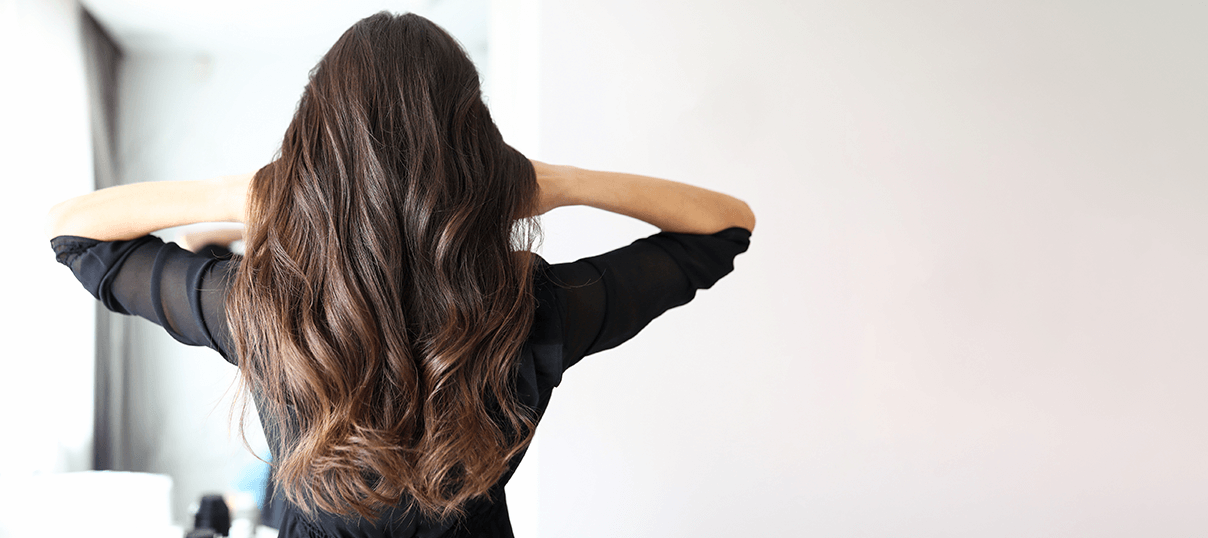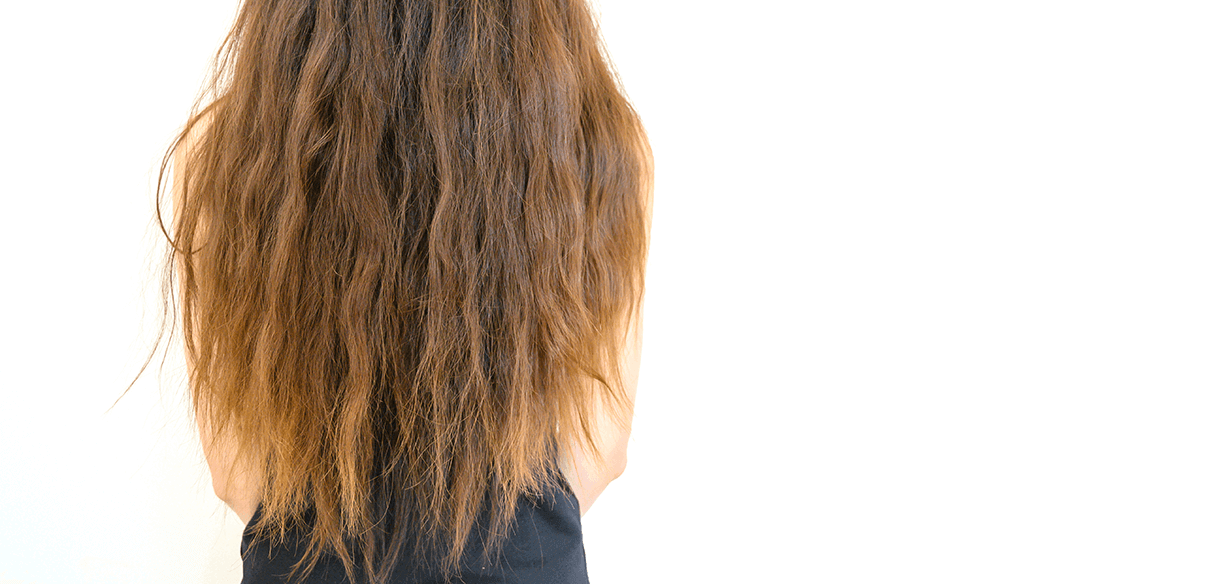Healthy hair is naturally shiny, because its smooth structure reflects light. But when hair is damaged, the scales that compose its outermost layer lift away from one another: the surface becomes irregular and the hair loses its shine. However, a few simple tips will help you restore your hair’s shine in most cases. Let’s find out what they are.
Understanding dull hair
Hair shine depends on the state of the cuticle, the outermost layer of the hair shaft. The cuticle is composed of colourless keratin scales which overlap one another like tiles on a roof. They are connected by a lipid-rich intercellular cement. When hair is completely healthy, the scales are closed and the cuticle is smooth. In this state, it reflects light perfectly.
The cuticle’s role is to protect the hair’s core and it is the first line of defence against the external stresses hair is exposed to daily: water, dirt, sunlight, wind, styling, etc. Because it is very thin, it is easily altered: as a result of repeated external stresses, nutritional deficiencies or hormonal problems, the intercellular cement becomes depleted and the keratin scales lift apart from one another. In such a situation, the hair no longer reflects light, it absorbs it instead. It loses its sheen and starts to look dull. The open scales also make the hair porous: water can penetrate more easily into the cortex, the layer just under the cuticle. As a consequence of this, the hair becomes limp and lifeless, dirties quicker, and quickly becomes frizzy in humid conditions.
All hair types can be dull at times, but dry, white and straightened frizzy hair types are particularly prone to dullness.

Caring for dull hair
• Avoid hair treatments containing silicone: this substance makes hair glossy at first, but changes the cuticle structure and damages hair in the long term.
• Wash your hair with a mild conditioning shampoo.
• Be extra careful when rinsing: use warm or cold water and only stop when your hair squeaks under your fingers. Add a few drops of vinegar or lemon juice to the final rinse. These will help close the keratin scales and neutralise the limescale contained in the water.
• Let your hair dry naturally as often as possible. If using a hair dryer, place it a good distance away from your hair and opt for a warm or cold setting.
• Untangle your hair gently with a natural bristle brush, without pulling on knots.
• Massage your scalp regularly to stimulate blood circulation: this will help bring essential nutrients to your hair’s roots.
• Once a week, apply a hair mask containing organic keratin (or chitin) for deep hair repair.
• Avoid hair dyes, perms, and smoothing or straightening treatments, as these damage the hair cuticle.
• Avoid spending too much time in the sun, as it damages hair.
• Eat a balanced diet and, in particular, be mindful of getting enough iron, vitamin B6 and essential fatty acids.
• Several times a year, take a course of hair-strengthening food supplements.



